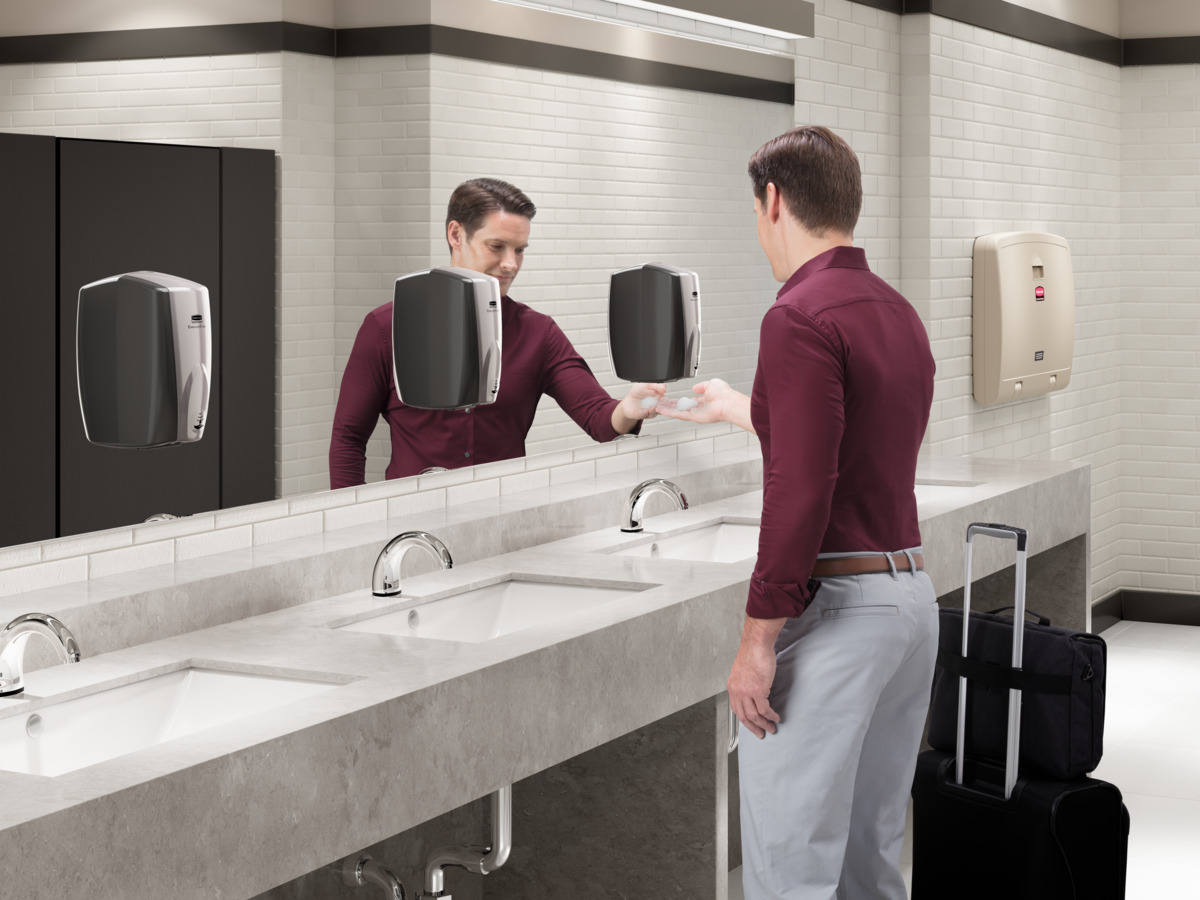
Handwashing is an effective, low-cost way to keep yourself and others safe and healthy. Every year, the Global Handwashing Day campaign raises awareness on the importance of handwashing, and gives businesses an opportunity to check their hand hygiene facilities are up to the task.
When the COVID-19 pandemic started in 2020, the world put hand hygiene to the forefront. Hand sanitiser dispensers became a regular sight at the entrances of hospitality venues and offices, and we all learned to sing ‘happy birthday’ while washing our hands for the required length of time.
However, five years on, we know there’s still some confusion and misunderstanding around hand hygiene in the workplace. We’ve answered some of the most common questions and explained how you can get the right hand hygiene solutions for your facility.
Why is it important to wash your hands?
The National Foundation for Infectious Diseases reports that around 80% of infectious diseases are spread by dirty hands1, but this can be prevented by proper hand hygiene. Soap molecules trap dirt and microbes that then get rinsed away by running water, while hand sanitiser works by killing germs.
In a workplace, a lack of hand hygiene leads to more employee sickness and therefore extra costs and lower productivity. This is especially true in the UK, where employees are more likely to come to work while sick instead of taking the day off2, and therefore spread those germs to their workplace.
Is using hand sanitiser the same as soap and water?
93% of adults say they prefer to wash their hands with soap and water over other methods like alcohol-based hand sanitiser1. However, hand sanitiser can be more accessible than soap and water when you’re out and about, for example on public transport. Our Foam Alcohol Hand Sanitiser contains moisturising ingredients and kills 99.99% of common germs to disinfect your hands in 30 seconds.
Be aware that hand sanitiser is not a long-term substitute for handwashing with soap and water, so make sure the latter is still provided in all your facilities.
Are touch-free soap dispensers safer?
Instead of holding a bar of soap or touching a pump dispenser, touch-free automatic dispensers reduce contact between unwashed hands and surfaces.
Our wall-mounted AutoFoam dispensers are automatic and touch-free to minimise the risk of contact with bacteria, and use hygienically sealed refills to avoid cross-contamination.
Finding the right hand hygiene solution for your facility
Places like event venues and restaurants have the steepest curve with regards to handwashing. They’re high traffic areas but don’t always have easily accessible handwashing facilities for customers, and there isn’t the same level of hygiene awareness as in somewhere like a healthcare setting.
To encourage handwashing in your facility, make sure soap and running water are readily available to all staff, customers and visitors, or provide hand sanitiser dispensers in places where that isn’t feasible.
Our washroom product range can be bought in volume from our distributors, making it easy to roll out soap dispensers across even large facilities. Not only that, but our refills contain up to 3,250 doses of soap to give you an even more cost-effective hygiene solution.
Explore our washroom range today, or contact the RCP team to discuss how our hygiene products can meet your business’ needs.
Sources:
1. https://www.nfid.org/wp-content/uploads/2025/05/2025-NFID-State-of-Handwashing-Report.pdf
Share on Social Media